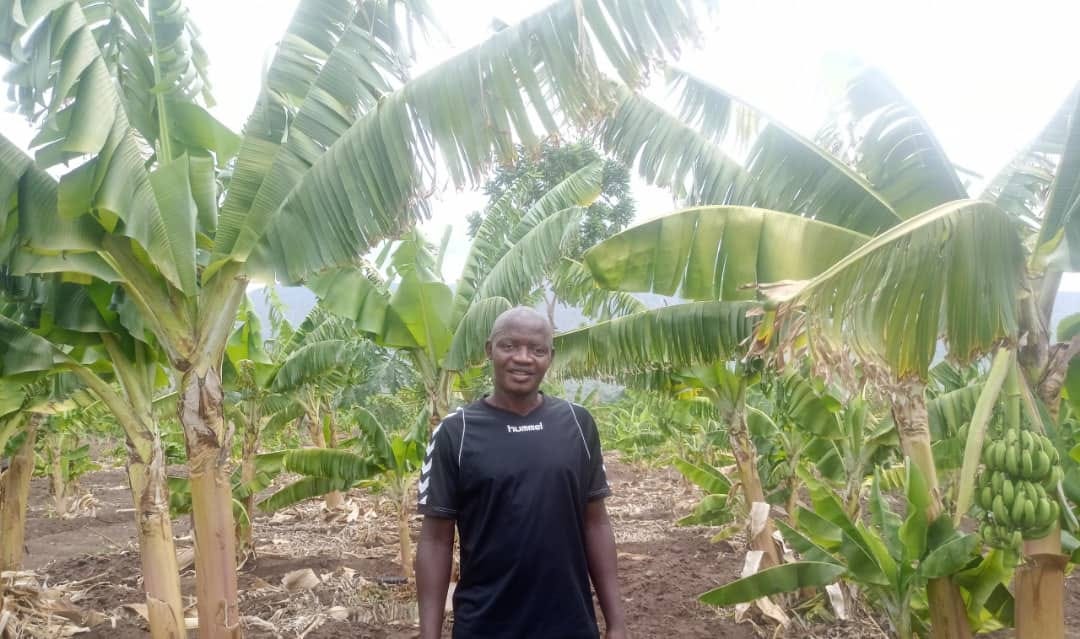Malawi's Vulnerable Farmers Thriving Thanks to Adaptation Fund Project
Government and UN Program Support Climate Adaptation and Food Security
Zomba, Malawi - Farmers in the southern region of Malawi are experiencing newfound prosperity through the implementation of the Adaptation Fund project, writes Esther Banda.
This initiative, supported by the Government of Malawi (GoM) and the World Food Program of the United Nations (WFP), aims to enhance climate adaptation and food security for vulnerable households.
Malawi has been grappling with an increase in weather-related shocks, including floods, droughts, dry spells, and rising temperatures.
These challenges have adversely affected agricultural productivity, food security, and the well-being of rural communities.
In response, the GoM and WFP have collaborated to provide integrated climate risk management strategies and structured market opportunities to the most vulnerable households.
Implemented in Balaka, Machinga, and Zomba Districts, the Adaptation Fund project has received a grant of $9,989,335.
The project targets a total of 85,000 households, benefiting approximately 382,500 people.
Its key focus areas include promoting soil and water conservation practices, individual and group asset creation, irrigation development, and crop diversification with an emphasis on drought-tolerant and nutritious crops.
Henry Masaninga, a 48-year-old beneficiary from Mdawali Village in Zomba District, shared his success story.
Initially struggling due to climate change impacts, Masaninga received 250 banana suckers through the project, enabling him to start a banana farm in Mjambe 1.
Within just a year, he and his family have generated over K4 million in revenue. They have used the funds to renovate their house and pay their children's school fees.
"I feel honored because my life is no longer the same. Honestly, this project has made me realize that only the sky is the limit," said Masaninga, expressing his gratitude.
Despite initial discouragement from others who believed their farming efforts would degrade the land, Masaninga and his family persevered.
Not only have they achieved financial stability, but they have also extended support to other vulnerable individuals in their village.
They have taken on the responsibility of paying the school fees for a needy Form 2 student from a different area and have provided 50 banana suckers to help another family achieve financial independence.
Cleopas Lameck, Zomba District Project Coordinator, emphasized the project's goal of empowering farmers to adapt to climate change impacts.
Despite the country's challenges, the project aims to ensure that farmers can achieve economic stability.
"Climate change is here to stay, and we want our farmers to adapt and thrive," said Lameck.
Chief Mjambe 1, expressing his satisfaction, noted that hunger is now a thing of the past since the project's implementation in Zomba.
Farmers in the area are not only consuming bananas from their own farms but also selling the surplus produce.
However, Chief Mjambe 1 expressed the need for a Solar Water Pump to help conserve water resources, given the negative effects of climate change on agricultural activities.
Zomba District plans to target a total of 29,250 households, benefiting approximately 131,625 people from the 33 Group Village Headmen (GVHs) working with the Chingale Extension Planning Area (EPA).
Through the continued efforts of the Adaptation Fund project, vulnerable farmers in Malawi's southern region are finding resilience and prosperity in the face of climate change challenges.



